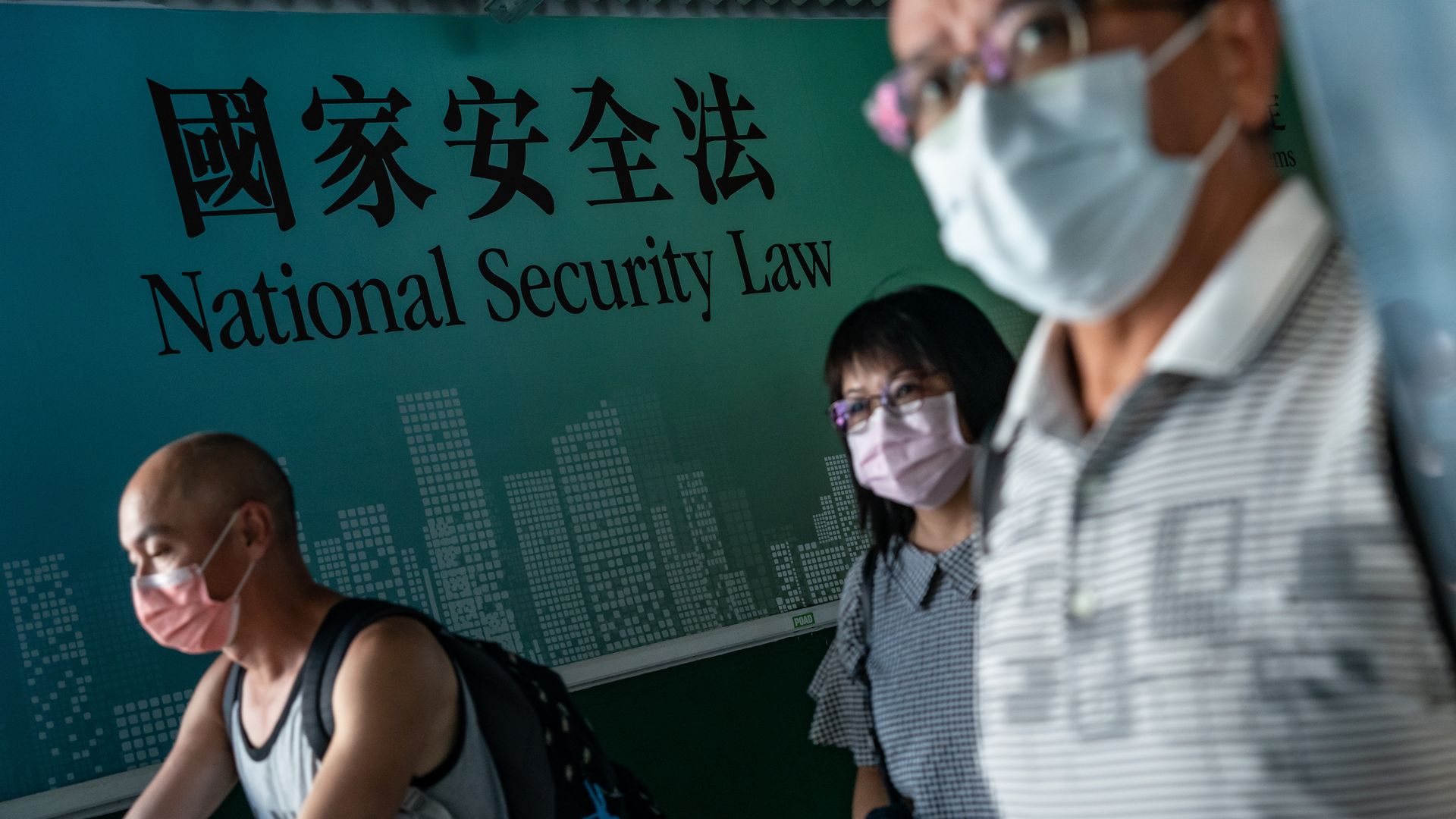New Hong Kong law sets harsh penalties for broadly defined political crimes
Add Axios as your preferred source to
see more of our stories on Google.

An advertisement from the government promoting the new law in Hong Kong. Photo: Anthony Kwan/Getty Images
Hong Kong's government released the text of a new national security law imposed by Beijing just as the law came into force on Tuesday.
What it says: The law defines crimes such as terrorism and sedition broadly, but mandates harsh sentences — in many cases life imprisonment — for those found to have committed them. It will be enforced by a National Security Committee, headed by Hong Kong's chief executive, without any input from the judiciary.
Between the lines: The national security law manifests the Chinese Communist Party's approach to governance known as "rule by law," rather than "rule of law."
- It includes sweeping definitions of crimes and penalties that gives the government broad power to limit people's political freedom, while explicitly denying any kind of independent oversight of the law or how it is carried out.
The big picture: The security law is the clearest encroachment to date on the autonomy that has allowed Hong Kong to flourish as a global financial hub, with political and legal protections unimaginable on the mainland.
- Hong Kong's future is currently unclear, with the U.S. revoking special trading privileges on the grounds that the city is no longer autonomous from China, and everyone from activists to international corporations concerned about how the law will be implemented.
- It was approved in response to last year's massive pro-democracy protests in the city, and appears designed in part to prevent further mass displays of dissent.
Zoom in: The law describes the bureaucratic and organizational outlines of the new security state.
- It establishes a Hong Kong government national security committee, exempts decisions made by the committee from judicial overview, and mandates that the committee must have a Beijing-appointed advisor.
- It prohibits "collusion" with foreign governments or institutions, which could potentially target those who have called on international bodies to condemn China or lobbied the U.S. Congress for sanctions.
More details:
- Leading a terrorist organization carries a minimum sentence of 10 years and a maximum of life in prison, but it's unclear what sorts of organizations that designation will apply to.
- There is concern in Hong Kong that the prohibition of "terrorist activity" will be applied broadly and arbitrarily. The law does get specific in some instances, with "destroying a vehicle" cited as possible terrorist activity.
- The law requires Hong Kong to carry out "national security education" — a particularly controversial element given local resistance to propaganda in schools.
- The law also requires Hong Kong's police to establish a national security division, and states that it may hire "specialists and technicians from outside the Hong Kong Special Administrative Region" — meaning mainland China.
What to watch: The law explicitly states that it applies beyond Hong Kong’s borders and to everyone, whether they are a Hong Kong resident or not. The legal implications of that are unclear but potentially could be extraordinarily contentious if applied as written.

